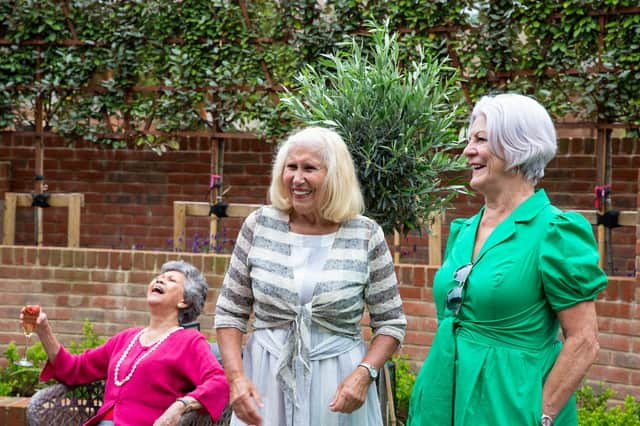‘Endemic stigma towards ageing and old people’ found in new study of British media and popular culture


The study, commissioned by Retirement Villages Group, assessed the language and images used to describe and depict older people in a representative sample of more than 40 newspapers, lifestyle magazines, adverts, and popular soaps.
It found themes of ill health, vulnerability and frailty dominated the newspapers, with 43% of newspaper extracts analysed describing older people as ‘vulnerable’ and 24% using the terms ‘frail, vulnerable or ill’.
Advertisement
Hide AdAdvertisement
Hide AdIn advertising, older people are typically shown in a domestic setting (18 out of 25 ads reviewed), in familial, non-working roles and, in lifestyle media, they are typically featured in ads about deteriorating health or inheritance.
Five in 25 of the adverts assessed featured an older woman in pearls, 16 in 25 showed an older person sitting down, with 19 in 25 adverts using an armchair or sofa.
In soaps such as Coronation Street, Emmerdale and Eastenders, older people were found to be often portrayed as ‘out of touch’, ‘at loggerheads’ with younger generations or as ‘a bit of a joke’.
Coronation Street was deemed the best example of positive representation of older people amongst the soaps.
Advertisement
Hide AdAdvertisement
Hide AdAdditional research amongst the British public found the presentation of older people on these channels is highly influential to the way they are perceived in society.
Around 1 in 4 people cite media as a contributing factor to their views on old age (26% TV and 23% newspapers).
Sixty seven per cent agree that media representation of older people creates unhelpful stereotypes and 92% stated they do not think that older people tend to be depicted in a fair and accurate way in the imagery used in media and advertising.
Will Bax, CEO of Retirement Villages Group, said: ‘It’s time to address the blinding misperceptions regarding older people in our society.
Advertisement
Hide AdAdvertisement
Hide Ad‘I see an endemic stigma towards ageing and old people, which too often acts as a barrier to the essential change which could unlock many of the social, economic, and political challenges we face as a nation.
‘We think that these stereotypes are getting in the way of opportunities for thousands of our elders to live independent, active, connected lives for longer. I believe passionately in the power of positive ageing, so we are today calling out the ageists and asking for a more realistic, fair portrayal of older people in our communities.’
In 2021, there were more than 11 million people aged 65 and over living in Britain (up to 18.6% of the population).